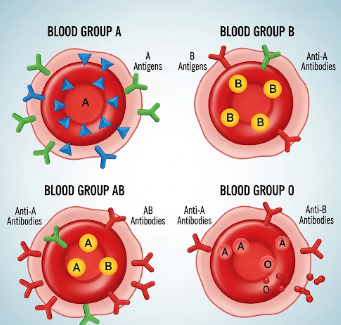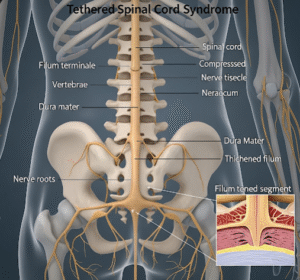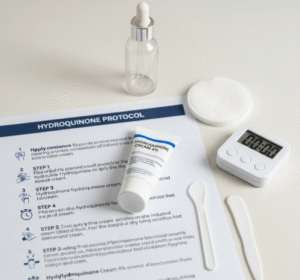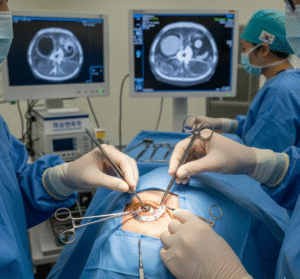Overview
Blood groups are classifications of blood based on the presence or absence of specific antigens on the surface of red blood cells (RBCs). Understanding blood groups is critical for safe blood transfusions, organ transplants, pregnancy management, and certain medical treatments.
The two most widely recognized blood group systems are:
- ABO system – classifies blood as A, B, AB, or O based on the presence of A and B antigens.
- Rh system – classifies blood as Rh-positive or Rh-negative based on the presence of the Rh (D) antigen.
Importance of blood group knowledge:
- Ensures compatible blood transfusions.
- Prevents hemolytic reactions during transfusion or pregnancy.
- Helps in medical research and disease susceptibility studies.
In South Korea, blood group testing is routinely performed in hospitals, clinics, blood donation centers, and prenatal care facilities. Modern laboratories use automated blood typing systems to ensure fast and accurate results.
Why It’s Done
Blood group testing is done to determine an individual’s blood type for medical, surgical, or personal reasons.
Common indications include:
- ➤ Blood transfusion compatibility – prevents severe immune reactions.
- ➤ Organ or bone marrow transplantation – matching ABO and Rh is crucial.
- ➤ Pregnancy management – Rh-negative mothers require monitoring to prevent hemolytic disease of the newborn (HDN).
- ➤ Medical research – understanding disease susceptibility and population genetics.
- ➤ Emergency care – rapid identification of blood group allows immediate transfusion when needed.
Benefits for patients:
- ✔️ Ensures safe transfusion and transplantation.
- ✔️ Helps prevent complications during pregnancy.
- ✔️ Provides personalized medical care based on blood type.
Alternatives
While direct blood group testing is the standard method, certain alternatives or complementary approaches exist:
- ➤ Historical records: Previously documented blood type in medical records.
- ➤ Genetic testing: DNA analysis can determine blood group antigens and rare variants.
- ➤ Crossmatching prior to transfusion: Ensures compatibility even if blood type is uncertain.
Key point: Direct blood typing is fast, reliable, and inexpensive, making it the preferred method for most clinical scenarios.
Preparation
Blood group testing is simple and low-risk, requiring minimal preparation.
Steps include:
- ✅ Identification and consent: Verify patient identity and explain procedure.
- ✅ Sample collection: Usually a small blood sample is drawn from a vein or finger prick.
- ✅ No fasting required: Blood group testing can be done at any time.
- ✅ Special considerations: Rare blood types or patients with autoimmune diseases may need additional testing.
Important: Blood group results are lifelong and rarely change, so testing is typically needed only once unless there is medical uncertainty.
How It’s Done
Blood group determination involves identifying antigens and antibodies in the patient’s blood.
Step-by-step process:
- Sample collection: Blood drawn from a vein or via finger prick.
- ABO testing: Blood is mixed with anti-A and anti-B sera to check for clumping (agglutination), indicating the presence of A or B antigens.
- Rh testing: Blood is mixed with anti-D serum to determine Rh-positive or Rh-negative status.
- Crossmatching (if transfusion needed): Patient’s blood is tested against donor blood to ensure compatibility.
- Result reporting: Blood type is recorded as A+, A-, B+, B-, AB+, AB-, O+, or O-.
Duration: Usually 15–30 minutes in most laboratories.
Hospital stay: Not required; outpatient procedure.
Pain level: Minimal, limited to slight discomfort from needle prick.
Recovery & Follow-up
Blood group testing has no recovery time, and results are instant or available within hours.
Follow-up considerations:
- Maintain a record of your blood type for emergency use.
- Rh-negative women should notify healthcare providers during pregnancy for Rh factor monitoring.
- Rare blood types may require registration with blood banks for future transfusions.
Important: Blood group results are stable throughout life, and repeat testing is rarely needed unless there is medical uncertainty.
Possible Complications
Blood group testing is generally very safe, with negligible risks:
- ⚠️ Minor discomfort or bruising at the needle site.
- ⚠️ Rare infection at puncture site if sterile technique is not followed.
- ⚠️ Incorrect labeling or identification – minimized by hospital protocols.
In South Korea, modern laboratories follow strict identification and hygiene protocols, making complications extremely rare.
Treatment Options / Clinical Relevance in Korea
Blood group knowledge is crucial in various medical situations in South Korea, including:
1. Blood transfusion services:
- 🏥 Hospitals and the Korea Red Cross Blood Service maintain extensive blood banks.
- 🏥 Blood group testing is mandatory prior to any transfusion, ensuring compatibility.
2. Organ and bone marrow transplantation:
- 🏥 Matching ABO and Rh types is essential for successful transplants.
- 🏥 Korean hospitals use advanced crossmatching and immunological testing for transplant safety.
3. Pregnancy and childbirth:
- 🏥 Rh-negative mothers receive Rh immunoglobulin injections to prevent hemolytic disease of the newborn (HDN).
- 🏥 Blood group testing is part of routine prenatal care.
4. Emergency and trauma care:
- 🏥 Blood typing allows rapid transfusion in trauma, surgery, or accidents.
- 🏥 Emergency blood type cards or electronic records are commonly used in hospitals.
Highlights in Korea:
- ✔️ Advanced automated blood typing and crossmatching technology.
- ✔️ National blood donation and transfusion programs with rigorous safety protocols.
- ✔️ Integrated medical records and prenatal care systems for rapid access to blood group information.
- ✔️ High awareness among patients regarding personal blood type, especially for medical emergencies.
Highlights
- ➤ Blood groups classify individuals based on antigens on red blood cells, primarily using ABO and Rh systems.
- ➤ Essential for safe transfusion, transplantation, and pregnancy management.
- ➤ Testing is simple, fast, and minimally invasive, requiring only a small blood sample.
- ➤ Results are lifelong, rarely changing, but must be accurately documented.
- ➤ Risks are minimal, including slight discomfort or bruising.
- ➤ South Korea provides advanced blood typing and transfusion services, integrated with national healthcare systems.
- ➤ Knowledge of blood group is critical in emergencies, prenatal care, surgery, and organ transplantation.













